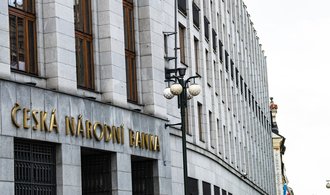The volume of the central bank’s foreign exchange reserves reached about 152 billion euros at the end of last year. They reached such a high level mainly thanks to the years 2013 to 2017, when the CNB, in an effort to increase inflation and support the economy, artificially weakened the currency by huge purchases of euros for newly created crowns.
“In our case, foreign exchange reserves are so large that we can say that a certain part, such as half or sixty percent, can be treated in the longer term and keep in mind their income function. Here we already have a relatively large share of investments in shares, “said the governor.
He pointed out that high foreign exchange reserves are important in case the CNB had to intervene to defend the Czech currency. “Robust foreign exchange reserves are very desirable for a country with its own currency. It’s a kind of atomic case, “he said.
–
–
Aleš Michl, a member of the CNB’s Bank Board, proposes, for example, to go into greater risk in order to achieve higher returns, and thus to increase the share of foreign exchange reserves invested in shares. His vision is even to build a state investment fund, which would be managed by the CNB and which would finance the pension reform from the money earned. He would help with such a plan, as the server recently said Today, they also had foreign exchange reserves.
However, in the governor’s opinion, the CNB is already one of those central banks whose investment profile is less conservative. Specifically, the share of investments in shares can be up to a fifth of the investment portfolio. The majority are safe bonds of foreign governments, for example.
“It is definitely not the goal of the central bank to become a permanent donor of the state budget, or even to deal with the financing of specific projects such as pension reform,” Rusnok noted.

–
–
He stated as one of the main reasons that the CNB’s income from invested foreign exchange reserves could not be planned for the long term. “Our revenues in crowns are still linked to the development of the exchange rate, because our assets are some 95 percent in foreign currencies,” said the head of the bank board. “So when the koruna strengthens, as was the case at the end of last year, we record a loss in koruna books. And this can happen again at any time in the future, “he added.
The CNB lost 37.5 billion crowns last year due to the strengthening of the koruna. On the other hand, a year earlier, thanks to the weakening of the koruna due to the crisis caused by the pandemic, it achieved a positive result of 91.7 billion crowns. And in 2019, the central bank’s profit was 57.9 billion crowns.
In the spring of 2020 after the arrival of the pandemic Michl even he suggestedthat the bank sends half of the profit from the previous year to the state budget. However, this idea did not materialize – the profit was used in other years to cover the losses of previous years.
The CNB’s accumulated loss after the last loss year amounts to around eighty billion crowns – according to Jiří Rusnok, sending money to the state budget is out of the question in the coming years.

–
–
“We must first cover our accumulated losses as a result of monetary policy,” he said. “Then we can start filling the reserve fund, as the law requires. And then we can consider some contributions or dividends of the state, “he added, adding that in the coming years the koruna should further strengthen the Czech Republic’s economic level due to the economic level, which will lead to further losses for the CNB.
But he did not rule out that the situation might change. “In the future, the CNB could pay a dividend to the state when the strengthening of the koruna stops and the accumulated loss is reimbursed,” he said.
In addition, according to Rusnok, sending money from the central bank would currently be problematic from the point of view of domestic and European law. “We must not finance the state’s standard expenditures. And that undoubtedly includes pension expenses. This is already monetary financing and it is prohibited by our and European laws, “the governor pointed out.
–


